Today marks the third day of the hunger strike protest under the banner #EndBadGovernance. As a conscious Nigerian who has fought for and supports our democracy, I write to you with a profound sense of urgency and solidarity. Our nation is at a critical juncture, and our voices must be heard. I hope President Bola Ahmed Tinubu will communicate with the protesters, and I am convinced that he can steer our country towards a brighter future. Today, I speak to convey what I believe Mr. President should say to the protesters and the nation to calm the tension and chart a path forward.
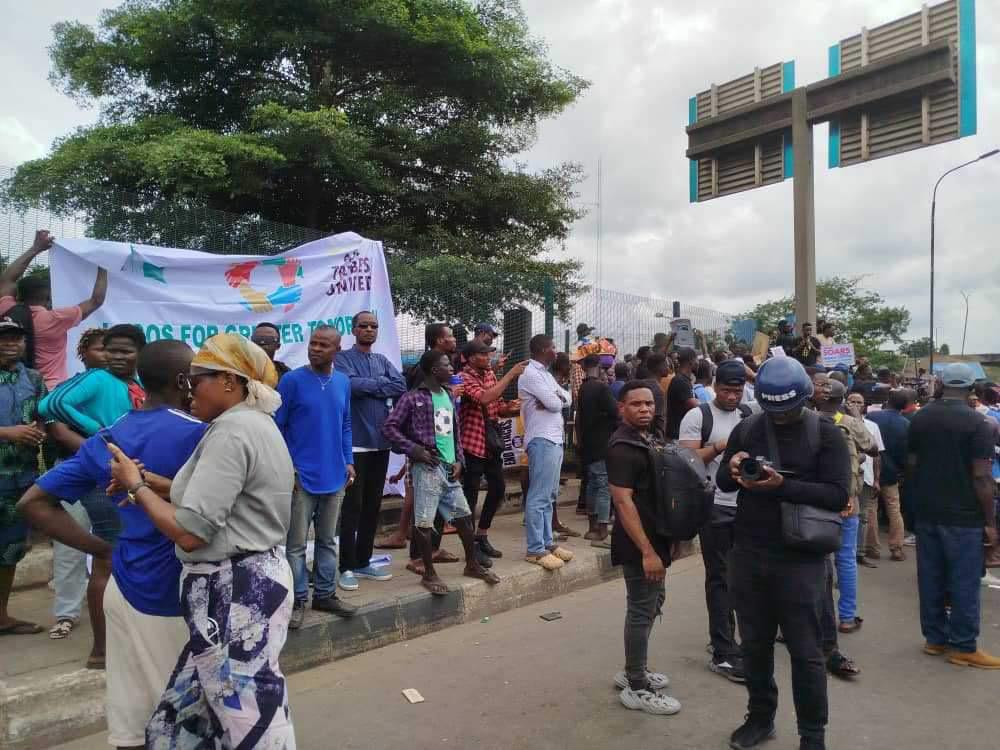
A Message to the Nation: President Tinubu’s Commitment to Change
Dear Fellow Nigerians,
To my fellow Nigerians on the streets, your right to protest is a fundamental pillar of our democracy. It is a right enshrined in our constitution, a testament to the strength of our democratic values. Your hunger strike is a powerful statement, echoing the struggles and sacrifices of those who fought for our freedom and democracy. Your voices, filled with pain and hope, demand to be heard, and they will be heard.
Let us remember the legacy of civil rights leaders like Martin Luther King Jr., whose peaceful protests in the United States transformed a nation. Here in Nigeria, our own history is rich with the spirit of resistance and the quest for justice. From the fight for independence to the pro-democracy movements, including the June 12 struggle, we have always risen to challenge oppression and demand better governance. Today’s protest is a continuation of that noble tradition.
Mr. President should address the nation with empathy, acknowledging the deep frustrations that have led to this moment. The struggles of daily life, the rising cost of living, insecurity, and the lack of basic amenities are not abstract issues; they are the harsh realities that millions of Nigerians face every day. These challenges are deeply personal, and they require
To the protesters, I say this: Your courage and determination are commendable. Mr. President should stand with you, not against you. He should call for a dialogue, inviting representatives of the protest to meet and discuss their demands directly. This is not a time for division but for unity. Together, we can find solutions that will benefit all Nigerians.
Addressing hunger is our immediate priority. An emergency food distribution program should be launched to ensure that no Nigerian goes hungry. This will be followed by comprehensive agricultural reforms to boost local production and ensure long-term food security.
The fight against terrorism, kidnapping, and violence must be intensified. This involves restructuring our security apparatus, improving intelligence, and ensuring that our forces are well-equipped to protect our citizens.
Creating job opportunities, especially for our youth, is crucial. Stimulating the private sector, investing in vocational training, and fostering entrepreneurship will be key steps in reviving our economy.
Improving medical facilities and ensuring accessible healthcare for all Nigerians is a top priority. Our elders deserve dignity and quality care in their twilight years.
Investing in our educational institutions and infrastructure is essential. Every Nigerian child deserves access to quality education, which is the foundation of our future.
Mr. President should emphasize the importance of an inclusive government where every voice is heard, and every citizen feels valued. He should invite all Nigerians to contribute their ideas and participate in building a nation that reflects our collective aspirations.
To the criminals who exploit our vulnerabilities, Mr. President’s message should be clear: Our resolve is unyielding. We will uphold the law and ensure that justice is served. This is a promise to all Nigerians who seek a safe and secure nation.
To Gen Z: Your energy, creativity, and resilience are the foundation of a new Nigeria. Mr. President should pledge to create an environment where your talents can flourish, and your dreams can become reality.
To the Working Class:*Your labor is the engine of our nation. Improving working conditions, ensuring fair wages, and creating a dignified working environment must be prioritized.
To Our Elders:* Your wisdom is invaluable. We will work tirelessly to ensure that you are cared for with respect and dignity, with access to quality healthcare.
A Message of Hope
In these uncertain times, let us remember that within uncertainty lies the potential for transformation. Mr. President should call on all Nigerians to rise to this challenge with courage and unity. The strength of our nation is not measured by the absence of struggle but by our ability to overcome it together.
President Bola Ahmed Tinubu, a man who has walked the streets and shared in our struggles, can indeed change the tide of our economy and make Nigeria great again. He is the comeback President, a leader who understands the power of the people and the importance of inclusive governance.
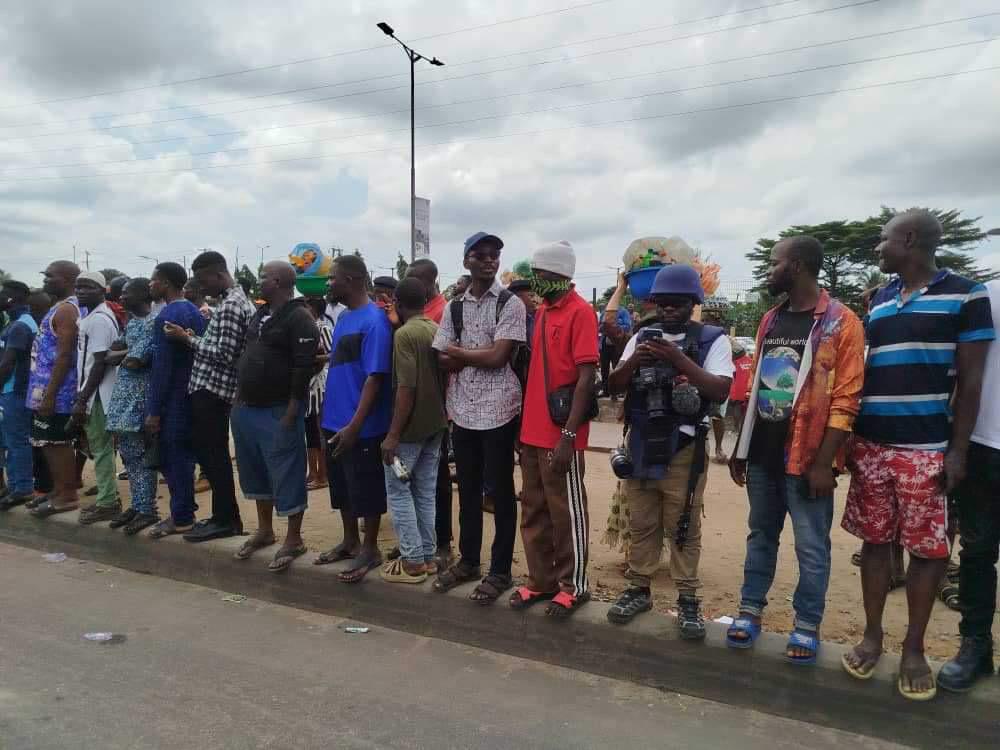
A Nation’s Call: A Future of Hope and Promise
This is our moment. This is our call to action. With empathy, understanding, and unwavering resolve, we will address the challenges before us. Let us rise together and forge a new path for our beloved Nigeria. Together, we will build a nation where justice, equity, and prosperity are not just ideals but lived realities.
Fellow Nigerians, let us join hands, rise together, and create the Nigeria we envision. The journey is long, but the destination is within reach. Together, we are unstoppable. May God bless you all, and may God bless the Federal Republic of Nigeria.
Religious Tolerance in the Midst of Protest: A Lesson from the Streets of Lagos
In the bustling streets of Lagos, amidst the fervent chants of “End Bad Government,” a remarkable scene unfolds that underscores Nigeria’s deep-rooted tradition of religious tolerance and understanding. As the protests intensify, calling for better governance and accountability, a moment of pause for Jumat prayers highlights the unique blend of activism and spirituality that defines the Nigerian experience.
The streets are filled with passionate protesters, their voices united in demanding change. Banners and placards wave high, bearing messages of hope, resilience, and a call for justice. Amidst this sea of activism, the Muslim call to prayer echoes through the air. Without hesitation, the protesters, irrespective of their faith, make room for their Muslim brothers and sisters to observe their Jumat prayers.
This act of respect and solidarity is not an isolated incident but a testament to the spirit of religious coexistence that has long been a hallmark of Nigerian society. It is a powerful reminder that, even in times of upheaval, the Nigerian people hold fast to their traditions of mutual respect and understanding.
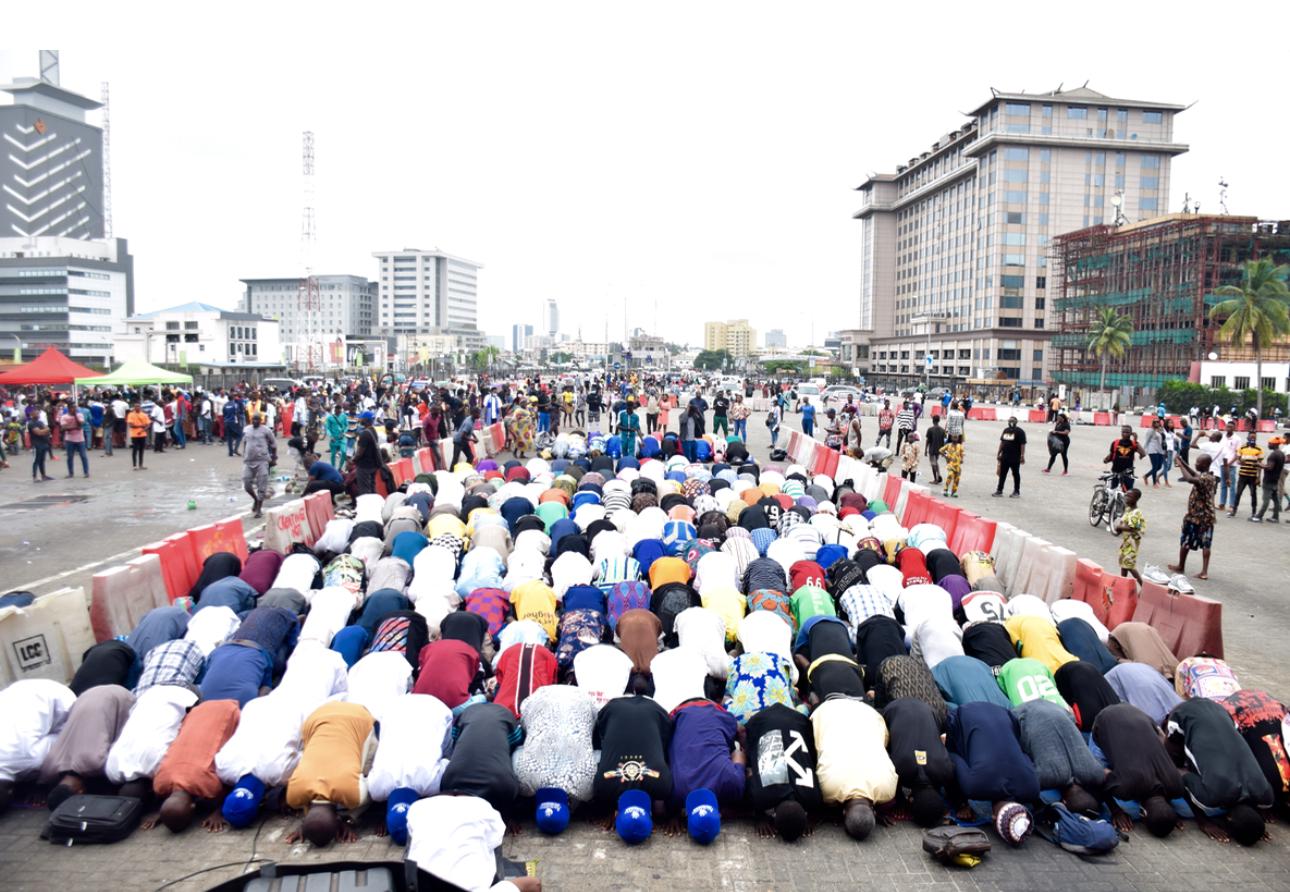
Historical Context of Religious Tolerance.
Nigeria, a country of over 250 ethnic groups and multiple religious beliefs, has a history marked by both interfaith collaboration and tension. However, in many communities, religious tolerance has prevailed. This tradition is rooted in a deep-seated understanding that, despite differing beliefs, Nigerians share common values and a collective destiny.
From the syncretic practices in Yoruba land, where traditional beliefs blend seamlessly with Christianity and Islam, to the peaceful coexistence in various urban centers, Nigeria has often demonstrated an admirable capacity for religious harmony. The scenes from the EndSARS protests and subsequent movements against bad governance are contemporary manifestations of this enduring legacy.
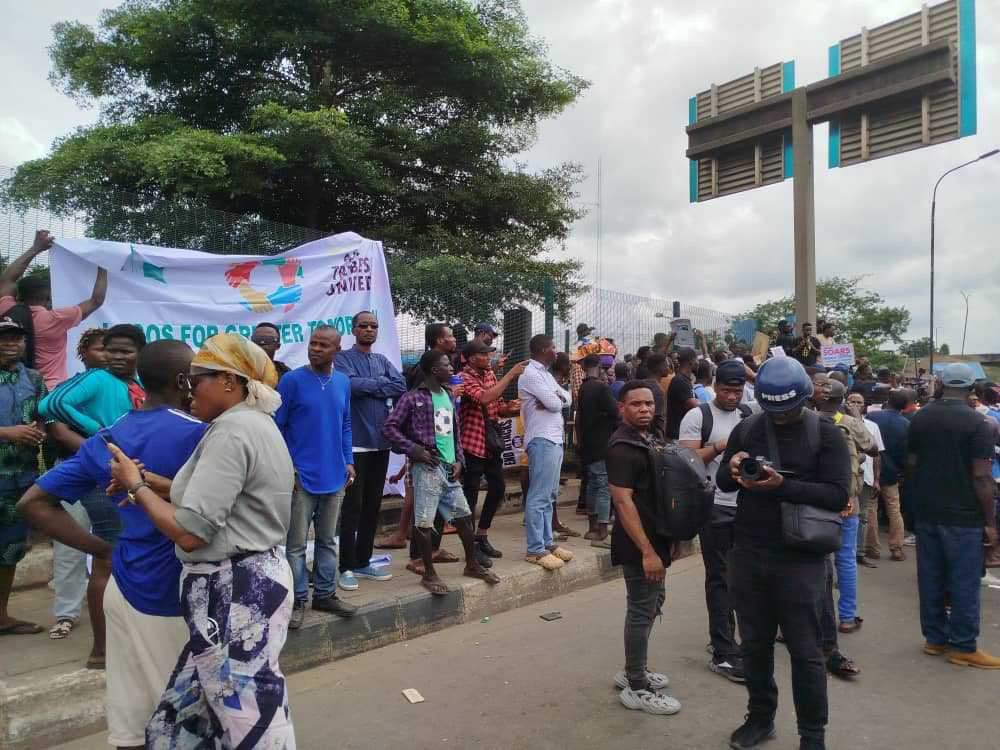
The Protesters’ Message
To the protesters on the streets of Lagos and across Nigeria are united by a common goal: to end bad governance and demand a better future. Yet, within this unity, they celebrate diversity. The allowance for Jumat prayers during protests is a clear message that their struggle transcends religious lines. It is a fight for justice, equality, and dignity for all Nigerians, regardless of faith.
This inclusivity is essential, as it underscores the broader message that the fight for good governance is a shared responsibility. The protesters recognize that true progress can only be achieved when everyone is involved and respected, and this includes honoring each other’s religious practices.
The Right to Protest and Worship
Nigeria’s constitution guarantees the right to freedom of expression and the right to practice one’s religion. The ability to protest and worship freely are fundamental aspects of a democratic society. By accommodating religious practices within the framework of their protests, Nigerians are not only exercising these rights but also reinforcing the importance of these freedoms.
This dual exercise of rights illustrates a mature understanding of democracy, where the right to dissent and the right to worship coexist harmoniously. It sends a powerful message to the government and the international community about the values Nigerians hold dear.
The scenes from the streets of Lagos offer a profound lesson in religious tolerance and democratic engagement. In a world often divided by religious and ideological differences, the Nigerian protesters demonstrate that unity in diversity is not just possible but essential for meaningful progress.
Their actions remind us that respect for religious practices can strengthen a movement, adding moral and spiritual dimensions to the fight for justice. It shows that, even in moments of strife, there is room for compassion, respect, and mutual understanding.
As the protests against bad governance continue, the moments of religious observance within these movements offer a beacon of hope and a model of coexistence. They remind us that true democracy is inclusive, respectful, and compassionate.
In the words of Wole Soyinka, “There is only one home to the life of a river-mussel; there is only one home to the life of a tortoise; there is only one shell to the soul of man.” Nigeria’s shell, its soul, is its ability to unite in diversity, to protest with passion, and to pray with humility. This is the Nigeria that stands tall, even in the face of adversity.
Is Nigeria a Failed or Functioning State?
Nigeria, Africa’s most populous nation and largest economy, stands at a complex crossroads of history, politics, economics, and ethnicity. This analysis delves into Nigeria’s trajectory, weighing its achievements and challenges to determine whether it qualifies as a failed state or a functioning nation-state. Drawing on historical and political antecedents, economic realities, and ethnic dynamics, we aim to present an unparalleled, intricate narrative, invoking the intellectual rigor of Aristotle, the literary eloquence of Shakespeare, the profound insight of Wole Soyinka, the oratorical mastery of Winston Churchill, and the inspirational vision of Barack Obama.
Nigeria’s journey began with the amalgamation of the Northern and Southern Protectorates in 1914 by the British colonial administration, an act more driven by administrative convenience than by cultural or political coherence. This union brought together over 250 ethnic groups, each with distinct languages, cultures, and political systems, planting the seeds of future discord.
Post-independence in 1960, Nigeria experienced a brief period of optimism. However, ethnic tensions and political instability soon surfaced, culminating in the devastating Biafran Civil War (1967-1970). The war left deep scars, but it also forged a fragile sense of unity and a determination to build a cohesive nation-state.
Politically, Nigeria’s path has been tumultuous. The oscillation between military and civilian rule, especially during the late 20th century, hindered democratic consolidation. The return to civilian rule in 1999 marked a significant milestone, yet the democratic process has been marred by corruption, electoral fraud, and weak institutions.
Recent administrations, including that of President Muhammadu Buhari, have faced accusations of ethnocentrism and an inability to tackle corruption effectively. Despite these challenges, Nigeria has seen some progress in democratic norms, with relatively peaceful transitions of power and an increasingly vocal civil society.
Economically, Nigeria’s vast oil reserves have been both a blessing and a curse. The oil boom of the 1970s brought wealth but also entrenched corruption and dependency on a single commodity. The volatility of oil prices has exposed the fragility of Nigeria’s economy, leading to cycles of boom and bust.
In recent years, efforts to diversify the economy have gained momentum, with growth in agriculture, technology, and services. Yet, structural issues such as inadequate infrastructure, high unemployment, and widespread poverty persist. The informal sector remains a critical lifeline for many Nigerians, highlighting the resilience and entrepreneurial spirit of the populace.
Ethnic and regional disparities continue to shape Nigeria’s political and economic landscape. The North-South divide, religious differences between the predominantly Muslim North and Christian South, and the marginalization of minority groups exacerbate tensions.
The rise of Boko Haram in the Northeast and militant groups in the Niger Delta underscores the security challenges stemming from these disparities. However, grassroots movements and dialogue initiatives offer hope for bridging these divides and fostering national unity.
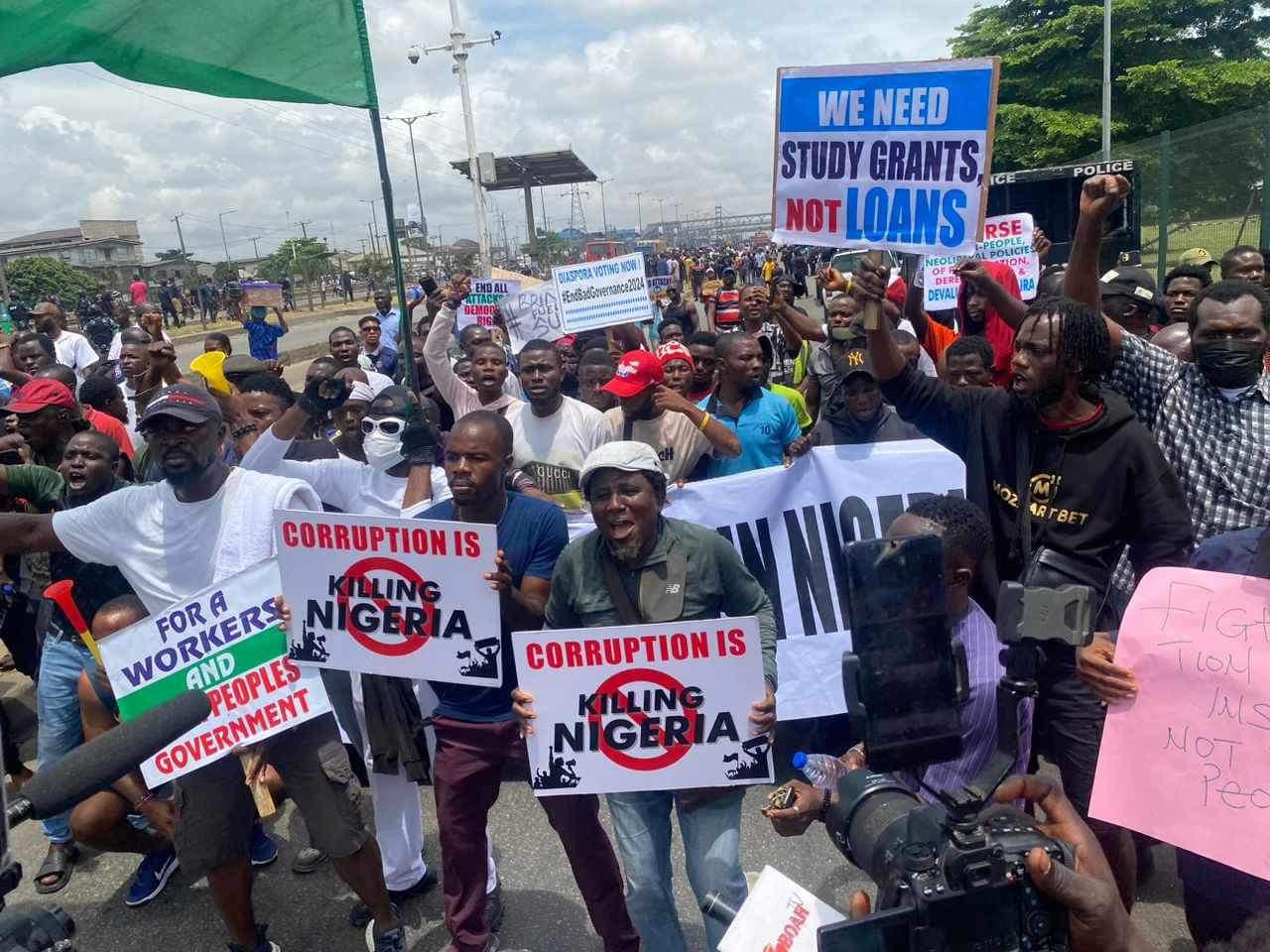
Episode 3: The Verdict: Failed or Functioning?
Labeling Nigeria as a failed state would be an oversimplification of its complex reality. Nigeria exhibits characteristics of both a functioning state and a struggling one. It boasts vibrant economic sectors, a dynamic youth population, and a resilient democratic framework. However, systemic corruption, ethnic tensions, and socioeconomic inequalities undermine its progress.
In the spirit of Wole Soyinka’s profound reflections on human nature and society, Nigeria’s journey is emblematic of the broader African struggle for self-determination and development. As Barack Obama eloquently noted, the arc of history bends towards justice, and Nigeria’s trajectory remains inextricably linked to its people’s will to overcome adversity.
Nigeria’s story is one of paradoxes and potential. It is neither a fully failed state nor a seamlessly functioning one. It is a nation in flux, striving to harness its diverse strengths while grappling with deep-seated challenges. Like Aristotle’s contemplation of the polis, Nigeria’s future hinges on the collective efforts of its citizens to build a just and equitable society.
In the words of Winston Churchill, “Success is not final, failure is not fatal: it is the courage to continue that counts.” Nigeria’s courage to continue, to innovate, and to aspire for a better future, defines its place on the global stage. The Nigerian narrative is not merely a tale of survival but a testament to the enduring human spirit’s quest for progress and unity.

By: Jide Adesina.
for First Afrika 2024.
All rights reseved.

